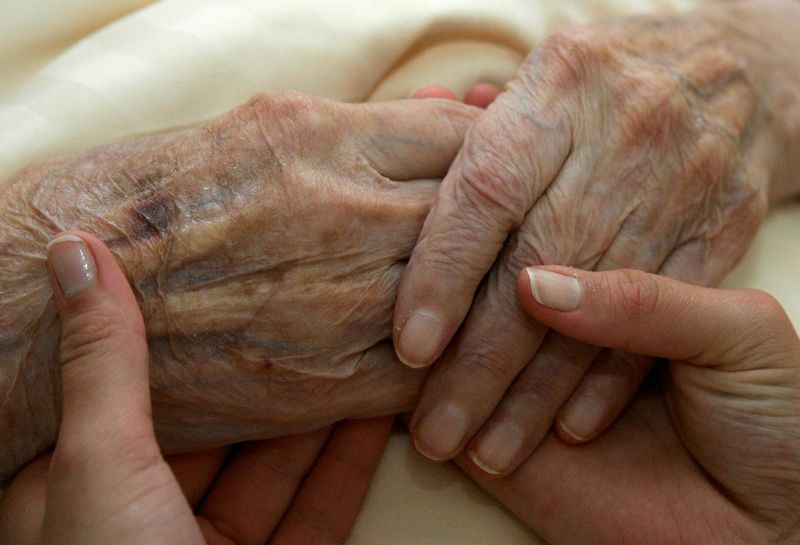By Chris Taylor
NEW YORK (Reuters) - Danielle Miura had a lot of dreams for what her life might look like at age 25. Then life stepped in.
Suddenly the financial planner from Ripon, California, was thrust into the role of caregiver for her beloved grandmother Neda who fell on a tile floor, broke her hip and faced mobility limitations.
For three years, Miura chipped in time, money and care, taking her grandmother to the emergency room so often that she got to know all the hospital security guards by name. That continued until Neda passed away at the age of 91.
"It was very stressful," said Miura, now 28, who helps others in this situation at her advisory Spark Financials. "I neglected my own health in the last year of caregiving. It definitely took a toll on me."
Indeed, one in five American adults provides uncompensated care for loved ones with health problems, according to a new report from the TIAA Institute and University of Pennsylvania School of Nursing.
On average, the expenses involved – from housing to healthcare to transportation – add up to more than $7,000 a year.
As a result, almost half of caregivers say they have suffered financially: withdrawing from their own savings, taking on debt, paying bills late, or cutting back on retirement contributions.
It is a quiet crisis, and a tricky one to solve.
"What stands out for me is the number of people who are not only caregivers, but financial caregivers too," said Surya Kolluri, who heads the TIAA Institute. "They basically become the family bank, providing money out of their own pockets. That puts a lot of pressure on them."
No wonder caregivers' financial lives are impacted: On average they have fewer assets and higher debt than non-caregivers, the report found. A quarter of them have less than $1,000 in savings or investments.
Here are three ways caregivers can minimize the financial hit:
TWEAK SCHEDULES AND TAP BENEFITS
Caregiving takes not just money, but also a fair amount of time – 24 hours a week on average, the TIAA Institute report shows. That can lead to work issues like arriving late, leaving early, taking extended time off or even early retirement.
But you may not even be aware of workplace benefits that could help, including geriatric care management services, paid family leave and emergency backup care.
Even your workday could be tailored to your needs, with an increasing number of flextime and work-from-home options that bloomed during the pandemic.
"Benefits are critical, but people often don't even know they exist or avail themselves of them," said Mary Naylor, director of Penn Nursing's NewCourtland Center for Transitions and Health. "There are lots of ways that employers can make the lives of their caregiving employees more productive."
CRAFT A FINANCIAL PLAN
Introduce caregiving into the equation and financial planning becomes more complicated.
Now you are dealing with issues like when to use the loved one's own assets to cover the cost of care; when and how to tap state or federal resources, which may be able to help with issues like assisted living; and how to choose the right insurance, for health coverage or additional policies like long-term care.
A growing number of programs pay family members who are assuming the caregiving role. One company that helps make that happen is called Aidaly.
DO NOT DO IT ALONE
You might be tempted to be the family hero and take on all the caregiving responsibilities yourself, but going solo is a recipe for emotional burnout and financial ruin.
To get a sense of whether you are pushing yourself too far, check out the Caregiving Intensity Index developed by the organization ARCHANGELS.
Remember that others could likely contribute money or time or both as well, including siblings, children, friends, cousins and in-laws. By spreading out responsibilities, you can ensure that the entire load does not fall all on your shoulders.
For advice and tools about where to go for help, check out the U.S. Department of Health and Human Services, Family Caregiver Alliance and National Alliance for Caregiving.

As costly as caregiving may be, both emotionally and financially, Danielle Miura said the experience was priceless.
"When my grandfather passed in 2015, the last thing we told him was that Neda would be comfortable until she passed away," she said. "That was our promise to him – and we kept that promise."